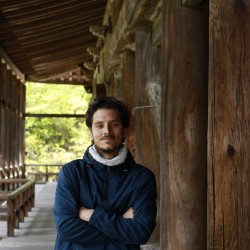
Dr Guilherme Raj
Academic and research departments
Centre for Environment and Sustainability, Institute for Sustainability.About
Biography
I research how to transform food systems towards more socially fair and ecologically sound food production and consumption approaches. With particular attention to power and politics, I've contributed to different areas of study exploring sustainability transformations, grassroots initiatives, sustainable food systems, and gender and sexuality in agriculture. I earned my PhD in Environmental Governance from Utrecht University, and my MSc in Communication, Health and Life Sciences, specialising in Sustainable Food Systems from Wageningen University.
Publications
11 This chapter delves into the role of power in sustainability transitions, addressing the 12 limited attention power dynamics have received in the field despite their centrality to 13 lasting societal change. Drawing on theories of power from various disciplines, this 14 chapter introduces two conceptual frameworks to analyse power: (1) " power to, over, and 15 with " , which examines how and which power relations change over time, and (2) " three 16 relations of power " , which focuses on how power relations are constituted and shape 17 societal change. These frameworks are applied to a case study of community-supported 18 agriculture (CSA) in Portugal, showcasing grassroots efforts to address socio-political 19 and ecological challenges while striving for sustainable agri-food systems. The analysis 20 reveals how power influences opportunities and barriers for transitions, emphasising the 21 interplay between individual and collective agency, human and non-human interactions, 22 and historical structures of social relationships. The chapter concludes by emphasising 23 the need for more power-aware research that integrates diverse perspectives, including 24 non-Western and Indigenous epistemologies, to deepen the understanding of power in 25 sustainability transitions. 26